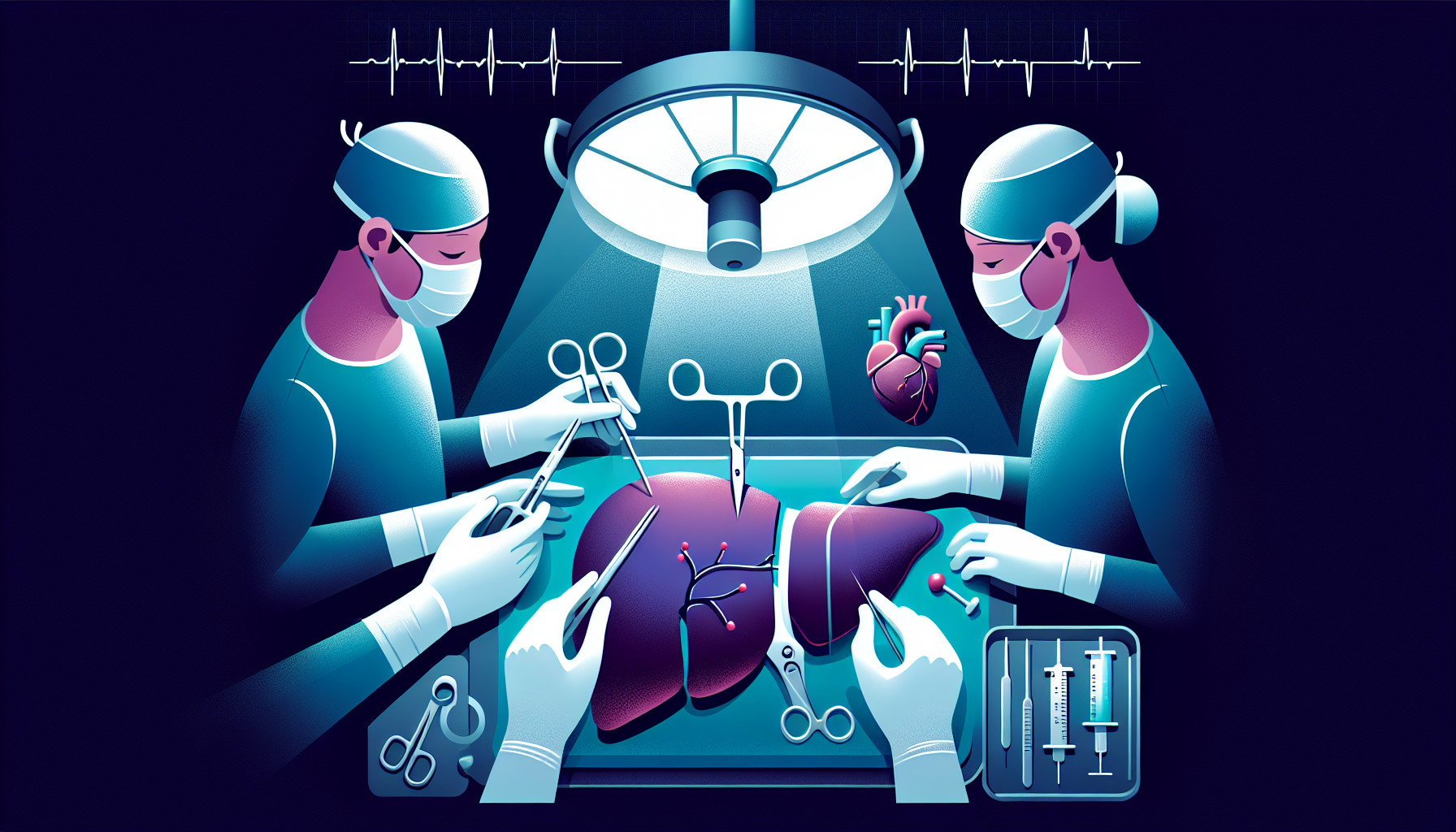Our Summary
This research paper discusses the China Liver Transplant Registry (CLTR), a project aimed at improving liver transplant techniques, processes, and outcomes in China. The CLTR records all liver transplant activities in mainland China and uses this data for scientific analysis. The information gathered over the past ten years has significantly changed the way liver transplants are performed in the country. The CLTR also supports the National Liver Transplant Quality Control Center in improving its quality control methods. The ultimate goal of the CLTR is to enhance liver transplant procedures in China in a more systematic and scientific manner.
FAQs
- What is the main purpose of the China Liver Transplant Registry (CLTR)?
- How does the CLTR assist the National Liver Transplant Quality Control Center?
- How has the information gathered by the CLTR over the past ten years impacted liver transplant procedures in China?
Doctor’s Tip
One helpful tip a doctor might tell a patient about liver transplant is to closely follow all post-transplant care instructions provided by the medical team. This includes taking prescribed medications, attending follow-up appointments, and making necessary lifestyle changes to support a healthy recovery. By following these guidelines, patients can help ensure the success of their liver transplant and maintain optimal liver function in the long term.
Suitable For
Patients who are typically recommended for a liver transplant include those with end-stage liver disease, liver failure, liver cancer, or certain genetic liver disorders. These patients may have exhausted all other treatment options and have a poor prognosis without a transplant. The decision to recommend a liver transplant is based on a thorough evaluation of the patient’s medical history, liver function, overall health, and likelihood of success with a transplant. Additionally, patients must meet certain criteria, such as being physically and mentally able to undergo surgery and adhere to post-transplant medications and lifestyle changes. The CLTR helps identify and prioritize patients who are most in need of a liver transplant and ensures that the transplant process is carried out in a safe and efficient manner.
Timeline
Before Liver Transplant:
- Patient is diagnosed with a liver disease, such as cirrhosis or liver cancer, that cannot be effectively treated with medication or other therapies.
- Patient undergoes a series of tests to determine if they are a suitable candidate for a liver transplant, including blood tests, imaging studies, and psychological evaluations.
- Patient is placed on a waiting list for a suitable donor liver, which can take weeks to months depending on availability.
- Patient may experience symptoms of their liver disease worsening, such as fatigue, jaundice, and abdominal swelling, as they wait for a transplant.
After Liver Transplant:
- Patient undergoes a successful liver transplant surgery, which typically lasts several hours.
- Patient is monitored closely in the intensive care unit (ICU) immediately after surgery to ensure the new liver is functioning properly and to prevent complications.
- Patient is gradually moved to a regular hospital room as they recover, which can take several weeks.
- Patient undergoes physical therapy and rehabilitation to regain strength and mobility after surgery.
- Patient is prescribed immunosuppressant medications to prevent rejection of the new liver, which they will need to take for the rest of their life.
- Patient attends regular follow-up appointments with their transplant team to monitor their progress and address any complications that may arise.
- Patient may experience improvements in their overall health and quality of life as the new liver begins to function effectively.
What to Ask Your Doctor
- Am I a suitable candidate for a liver transplant?
- What is the success rate of liver transplants at this hospital?
- What is the average wait time for a liver transplant at this hospital?
- What is the recovery process like after a liver transplant?
- What are the potential risks and complications associated with a liver transplant?
- How long will I need to stay in the hospital after the transplant?
- What medications will I need to take after the transplant?
- Will I need to make any lifestyle changes after the transplant?
- How often will I need to follow up with my transplant team after the procedure?
- What support services are available for transplant patients at this hospital?
Reference
Authors: Yang Z, Liu JP, Chen JL, Zheng SS. Journal: Hepatobiliary Pancreat Dis Int. 2025 Feb;24(1):14-17. doi: 10.1016/j.hbpd.2024.11.006. Epub 2024 Nov 17. PMID: 39632155
